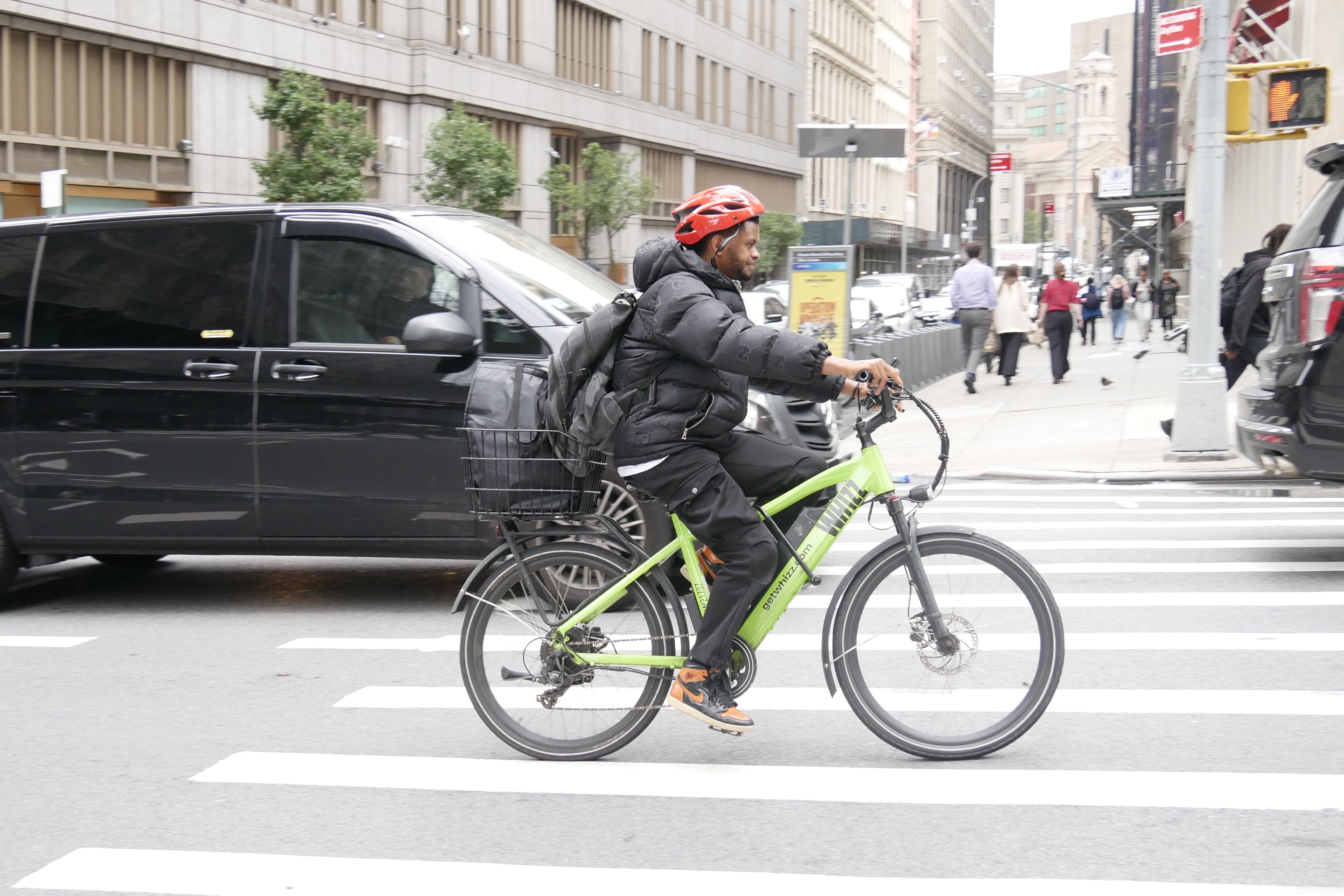 Ray Bengen, pictured on the sidewalk below his assailant, is paying a steep price for defending himself while riding in the Ninth Avenue bike lane.
Ray Bengen, pictured on the sidewalk below his assailant, is paying a steep price for defending himself while riding in the Ninth Avenue bike lane.Following Brad's post last week about one pedestrian's encounter with an enraged driver and the NYPD, I caught up with Ray Bengen, another New Yorker charged with criminal mischief after touching a car that threatened his safety. Bengen is still waiting for some kind of resolution to his case, which is on hold while the Manhattan DA's office decides whether or not to prosecute him.
Already, though, Bengen is paying a price. He earns much of his living flying small aircraft for government agencies, including the Department of Homeland Security, and consulting on computer projects for Wall Street. It's sensitive work, he says, and the clients who employ him always perform due diligence before signing off on a hire. Last week, a potential client rejected him because his criminal background check didn't pass muster. This had never happened before. As long as the criminal charge is hanging over his head, Bengen believes the market for his services will be severely restricted. He also expects to shell out for some attorney's fees as the case progresses.
When we first published Bengen's story, some readers speculated that the driver who assaulted him was an off-duty cop. Maybe that's true (the alleged perpetrator, Gus Gonzalez, certainly knows how to make his identity difficult to trace). But there also seems to be some doctrine at work, which is very commonly applied to confrontations in traffic, where the default position of law enforcement is to either charge both parties or neither party, no matter who received the brunt of the assault.
The Manhattan DA's office won't comment about the specifics of the Ray Bengen case, so I asked attorney Bob Mionske, who writes the Road Rights column for Bicycling Magazine, about the thought process law enforcement applies to cases like this. The column recently analyzed a case near Portland, Oregon in which police charged a cyclist for slapping the sideview mirror of an SUV after the driver buzzed him and threatened to run him down. Mionske replied:
What usually happens in these types of cases is when the police arrive on the scene, they have two parties who have been involved in an altercation, and both want the police to enforce the law in regards to the other guy. Unless witnesses can verify one account or the other, the police don’t really have any way of determining who did what, so when both parties are alleged to have been involved, the police will often press charges against both parties, and let the courts sort out who did what.
The Ray Bengen incident is somewhat different from the Oregon incident, because (as far as we can tell from the news accounts) Ray Bengen is not alleged to have damaged the driver’s car, as was the case in Oregon. If he did not in fact damage the car, then it is likely that the criminal mischief charge reflects his role in precipitating a fight -- at least for purposes of bringing both participants into the courtroom, until prosecutors can figure the case out. If he is brought to trial, it will be because prosecutors feel that his actions contributed to the incident in a way that meets the definition of criminal mischief. Prosecutors may also elect to reduce the charges to less serious charges in exchange for a guilty plea -- another reason more serious charges may initially be leveled in a case.
Another distinguishing characteristic of the Ninth Avenue road rage case is that a witness has come forward with pictures and testimony consistent with Bengen's account. So, how about it prosecutors: Is slapping a three-and-a-half ton SUV in self-defense a provocative act that meets the definition of criminal mischief?





